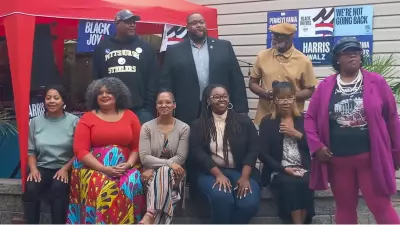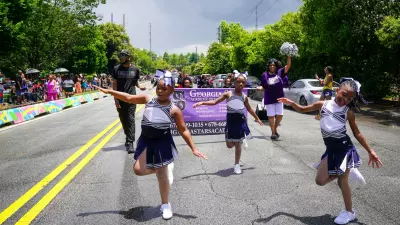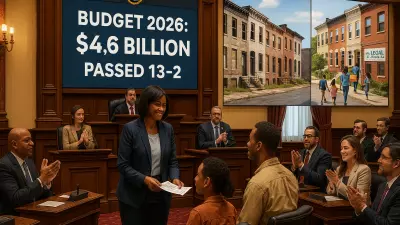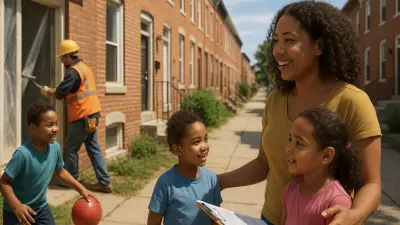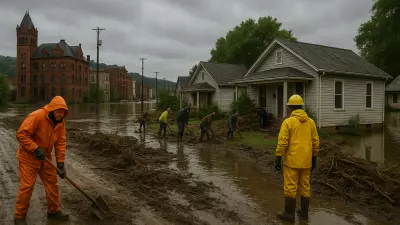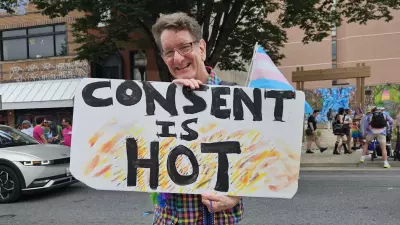What started as a coalition to elect Kamala Harris continues as an effort to build dialogue, consensus and raise voices of rural constituents it represents.

Carmina Taylor was taken by surprise.
In the summer of 2020, as protests were staged across the country in reaction to the murder of George Floyd, Taylor was awakened to what she felt was a pretty remarkable development in her home state of Pennsylvania. Of the 400-plus protests held in some 200 communities throughout the Keystone State, more than a third arose in rural counties.
As a Black woman living in the metropolitan Philadelphia area, Taylor knew next to nothing about rural Pennsylvania. “I didn’t know all the different nooks and crannies.” Many of these were “red” counties that had helped elect Donald Trump in 2016. Residents there were standing up for racial justice.
Taylor came to learn that 48 of the state’s 67 counties are classified as rural – and that there are Black and Brown people in these communities, many in positions of authority.
So she got in her car and started driving – exploring rural Pennsylvania. Around this time, she connected with Whitney Coe, coordinator for the Rural Assembly, an organization that strives to empower and amplify rural voices. Coe steered her to the Citizen University Civic Saturday Fellowship program, which trains “civic movers and shakers” to host gatherings that deepen connections among community members.
Taylor began holding such gatherings throughout rural PA.
Today, she’s the founder of the We Can’t Wait Pennsylvania Statewide Coalition, named in honor of Martin Luther King Jr.’s 1964 book Why We Can’t Wait.
“At that point in his walk in the movement,” Taylor says of King, “he said, ‘We can no longer ask for justice; we have to demand justice.’” It’s a calling she’s taken to heart.
Out of her travels came yet another inspiration: the Rural PA Black Mayors Coalition, a cohort enlisted to engage with people in small communities on behalf of Kamala Harris’s campaign for president.
What Taylor saw in these elected officials was consensus builders. Among them are Jaime Kinder and Kendy Alvarez, Black women from municipalities in which white voters constitute a roughly 90% majority who sold those voters on a vision of inclusiveness, crafting, in Taylor’s words, “tremendous policy proposals that will help everyone in their community.”
“We are Not a Monolith“
“We are farmers, we are beekeepers,” says Jaime Kinder, mayor of Meadville, a town of 13,000, 90 miles due north of Pittsburgh. “We are not a monolith here.”
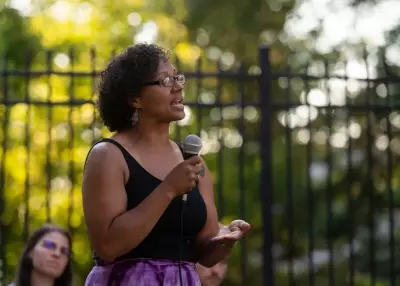
“Blackness is very often attributed to urban in a way that disassociates our ties to place and land, which is a problematic rewriting of history in this country,” Mayor Kendy Alvarez of Lewisburg says. Lewisburg, a town of just over 5,000, lies on the West Branch Susquehanna River, 160 miles northwest of Philadelphia. It’s home to Bucknell University.
Alvarez is president emeritus of Bucknell’s Black Alumni Association, which next year will celebrate the 150th anniversary of the graduation of Edward McKnight Brawley, the university’s first Black graduate.
There’s certainly a rich Black history in rural Pennsylvania. Kinder notes that in 1881, Meadville opened the first integrated school in the state, three-quarters of a century before the nation followed suit.
But Alvarez says that when you hear about Black people in the state’s rural communities, it’s generally along the lines of, “‘Well, where’s the Underground Railroad marker for your region.’ It’s not about [our] existence in this space; it’s about the utilization of this space, how white people let you stay on your way to somewhere else, and not that you existed here in a particular way.”
Kinder was elected the first woman and first Black mayor of Meadville since its incorporation in 1866 by getting out and talking to people. Her platform included establishing a systematic inspection program for residential rental properties that affirms “everybody deserves dignity where they live.”
She ran on a promise of transparent government: “Everybody deserves a voice in what’s going on in the town they live in.” She advocated for green spaces. In general, she ran on a platform that aspired to a quality of life accessible to everyone.
Working people needed hope, Kinder says, and she offered it. Within three years, she’d delivered on her promises.
Alvarez ran on a platform of community and economic development, leveraging her participation on city boards and as a volunteer on a number of initiatives, including the local hunger coalition, the Penn State Extension Ag Council, and the community hospital’s patient and family advisory council.
Shared Concerns
As representatives of their rural communities, Kinder and Alvarez strive to raise their constituents’ voices to be heard regionally, statewide, and nationally.
Alvarez says a barrier to connecting to the larger stage is that “we’ve got 2,560 fiefdoms” operating “without vast resources, without shared commitment, without collaboration and coordination.”
That lack of cohesiveness prevents rural communities from acting “more intentionally and impactfully.”
“I think that very often,” Alvarez says, “because we are these small communities, we’re so insular, focused on fixing things within our community, we fail to realize that there might be other people across the state that are having the same problems, and that if we had a conversation, maybe we can collaborate.”
This coalition of Black mayors aims to get those conversations started, and to make their colleagues aware of resources available to them. Alvarez cites the Center for Rural Pennsylvania, the Pennsylvania Department of Conservation and Natural Resources, and the Appalachian Regional Commission, as examples, as well as what’s available from the private sector.
The coalition will seek to exert more political influence for rural communities. While its original intent was to help elect Kamala Harris, there’s renewed urgency to continue this work.
“What’s absolutely apparent to me is that the mayors coalition has to continue because we need to create a civil discourse for our state regardless of this presidential election,” Taylor says. “I personally do not have confidence in the state party or in the national party to really bring people together the way that we need to.”
A sense of a lack of respect from the Democratic Party, and of a lack of awareness of how to welcome itself into rural communities, lingers.
Alvarez illustrates the point: “Dropping hundreds of people into rural communities the weekend before the election? Rural communities are insular people. … You guys just dropped a bunch of Dems from other places, and not to come here and spend your money, build into our economy.
“What you did was you showed up and you tried telling people how they should vote. Did you really think that was going to work?”
Normalizing the Conversation
Taylor has been recognized for her consensus-building efforts, including for her initiative in connecting with Republican county commissioners, speaking at their meetings. She was honored with an award from President Biden at his United We Stand Summit, one of 16 uniters, for her work building bridges to counter hate and division.
Going forward, coalition members have been invited to Butler County – the site of one of the two attempts on President-elect Trump’s life – in March for a conversation with mayors there, most of them Republican.
Taylor sees it as an important opportunity: “We need to normalize that conversation.”
Meanwhile, the work of recasting the role of rural on the broader stage continues.
“I think that on a statewide level, we have to rethink rural in a very impactful way,” Alvarez says, “and recognize that it’s not just about throwing monetary resources towards rural without capacity-building and coalition-building.”
She underscores that “in rural communities, where you have shrinking populations, the growing demographic is people of color. If we don’t start setting the stage in rural communities for an understanding of diversity in a different way, that’s going to be problematic.”
Kinder has high ambitions for this coalition.
“My aspirations are always power building, bringing awareness, and creating opportunity,” she says. “That means making sure we are seen together, seen as a unit. … We’re going to bring awareness that there are Black officials, that this can be done.”
Kinder embraces an unceasing sense of urgency. “I always feel like the time is right, this very second,” she asserts. “I’m ready to march right now, like, right this second.
“Don’t call me unless you’re ready.”
“It takes a lot of work, but we are here,” she says. “We’re willing to work, and we’re the change that people want.”
Disclosure: The Rural Assembly is a program run by the Center for Rural Strategies, the publisher of the Daily Yonder.

